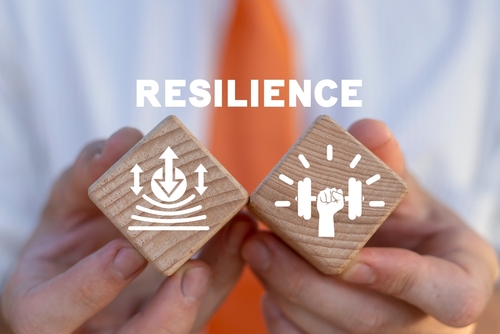Resilience is one of those nebulous concepts that can be difficult to manage within a business setting. It’s seen as a personal thing, something that is within the remit of the individual alone. And while enhanced personal resilience is clearly beneficial to the organization that any given individual works with, it’s not typically the role of the business to help in its foundation. But perhaps it’s time that it should be. Because without employee resilience, businesses are left with relentless churn. Whether through burnout, snap temper-driven resignations, or simple apathy. And at a time when finding and retaining the right talent for your business is no mean feat, that’s a scenario that can’t be left unaddressed.
The Opposite of Resilience
We all have our tipping points. The infamous ‘last straw’ can lead to cataclysmic personal change. But these moments are more common in individuals who take on too much. If a team member already feels overwhelmed by their workload, and underappreciated by their managers, they are far less likely to be able to cope with change and/or challenges. And this is the start of a lack of resilience. Which can be characterized by a range of symptoms, from irritability and brooding to a disproportionate degree of absence. Along with other symptoms that an employer may not necessarily be aware of, including trouble sleeping and substance abuse.
How a Lack of Employee Resilience Can Impact a Business
While absenteeism and poor temper can have an obvious impact on team morale, low employee resilience can impact a business in a variety of other ways. We’ve already talked about increased employee churn, but there’s also the associated expense of recruitment and training. There’s the loss of productivity. The knock-on strain heaped on other employees forced to pick up the slack. And low resilience can lead to reputational damage for the business, as employees present a harried or unprofessional face to customers and contacts, creating an impression of poor standards and poor service. Making resilience a point of priority.
How Businesses Can Support Better Team Resilience
While resilience can be a personal issue, guided by low self-esteem, there are things that businesses can do to support better resilience at work. And it involves not only getting to know individual employees and providing them with the guidance and encouragement to be their best. But also, truly understanding your business, and the potential concerns it may create for your workers. And this can be managed in a few ways.
Clarifying Goals
It’s easy to feel overwhelmed if you don’t know what you’re supposed to be doing. Providing a clear set of targets – and the tools necessary to complete them – is one of the easiest ways to help employees to feel not only that they are in control but that they are making a difference. And if you feel in control of your workload, you are better able to confront challenges.
Enhancing Communication
Communication is at the heart of every happy workplace. If an employee is to feel valued, they need to feel listened to. So, having a top-down open-door communication policy and strategy can have a significant impact on overall team morale. By encouraging communication – of the positives as well as the negatives – you are giving your team members a voice. Which in turn enhances individual self-worth.
Building Employee Engagement
As a general rule, engaged employees are more resilient. Largely because they are committed to their role and the business. They’re also happier. And employee engagement is something that can be relatively easily managed, through training, coaching, communication, and recognition.
Mindset Management
Many of us don’t realize it, but our biggest barrier to success is our own mindset. If we think that we can’t do something, the likelihood is that we won’t. Or, if we do manage it, it will take us longer and potentially be of a lower standard. Working on a team or an individual level and using a number of different approaches – mindfulness, engagement strategies, mindset coaching – mindset management helps employees to identify their personal hurdles and find ways to overcome them.
Creating a Strong Company Culture
In 2022, a Glassdoor survey reported that 77% of respondents consider a company’s culture before applying for a job. So, it stands to reason that poor organisational culture can impact resilience and retention. A business that treats its employees with respect and courtesy, encourages communication, and is prepared to support individual team member needs is more likely to have resilient employees, who are willing and able to confront change.
The Bottom Line
Employee resilience can be a difficult area to address. It can be hard to pinpoint where and how a business is failing. But if your employees lack resilience, your business will too. This is why for many companies; employee resilience has become a 2023 priority.
Lisa Collinson – Chief People Officer and UK Country Manager, TheNextWe. With a background in HR Strategy development, implementation, and measurement, Lisa Collinson has more than 22 years’ experience in people leadership. An accredited coach and popular speaker and presenter, she has worked across sectors throughout the UK, Europe, and internationally. Supporting businesses with change management, restructuring, and performance management – with an emphasis on behaviourism and why people act the way they do.
Lisa is FCIPD (Fellow of the Chartered Institute of Personnel and Development), a Member of the Institute of Training & Occupational Learning (MInstTOL), Applied Behaviour Analysis trained and an APMG Change Management Practitioner, and Member of the Institute of Leadership & Management (MInstLM).

